Diplomats complain that Russian President Vladimir Putin cannot read the room when it comes to negotiations. He begins negotiations with threats rather than understanding.
NATO nations are alarmed by the dozens of Russian Battalion Tactical Groups, units that consist of about 800 soldiers each, placed along Ukraine’s borders. Is Putin preparing to annex the Donbas region?
Or is it the beginning of a dialogue?
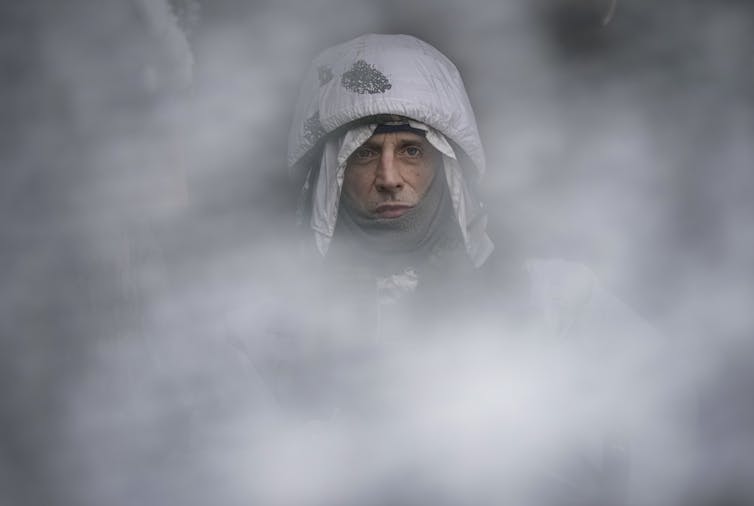
(AP Photo/Vadim Ghirda)
This show of force, which garnered a military presence not seen in Europe since the end of the Cold War, has certainly rattled the West. It’s also distracted Russians from domestic gripes about a fumbling economy, low vaccine trust and an Olympic team that cannot carry its own flag.
Russia’s US$1.71 trillion economy could not handle a war with NATO nations, considering that the United States economy is US$24.8 trillion. Ukrainian resistance against Russian forces would make for a bloody campaign, one neither Russians nor Ukrainians have any real desire to pursue.
From our partners:
Russia has large quantities of armoured vehicles, but Ukraine is home to one of the largest weapons black markets in the world, with somewhere between three to six million illegal firearms circulating in the country.
Now Kyiv just received new anti-tank weapons from the U.K. Will these weapons remain a deterrent? Or will they be sold for crypto currencies?
Putin’s isolation
If Putin has no appetite for war, then why the buildup? Since the pandemic, Russia’s president is increasingly seen as out of touch and isolated within Russia. The level of trust in the government is at an all-time low.
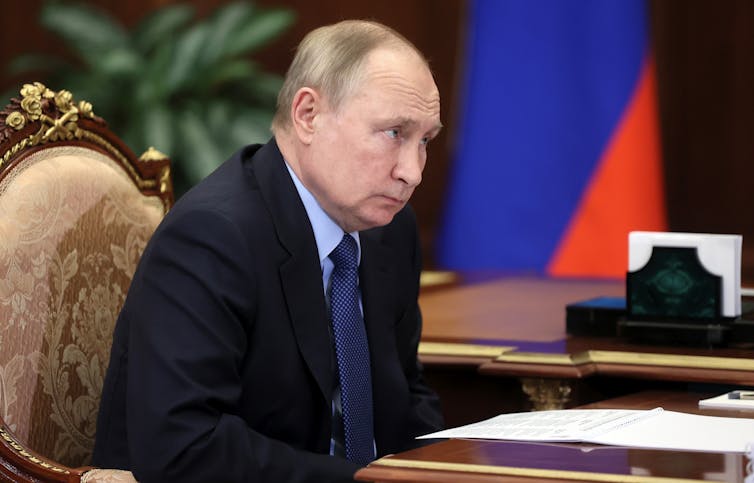
(Mikhail Metzel, Sputnik, Kremlin Pool Photo via AP)
Russian media often blame the United States for stoking troubles, but they don’t go so far to suggest Ukraine as a worthy target of retribution. In fact, Putin and many Russians would like to forge deeper ties with Ukraine, and this is what’s on Putin’s mind.
Nonetheless, the idea of a healthy, stable democracy in Kyiv, backed by the West, makes Putin incredibly nervous.
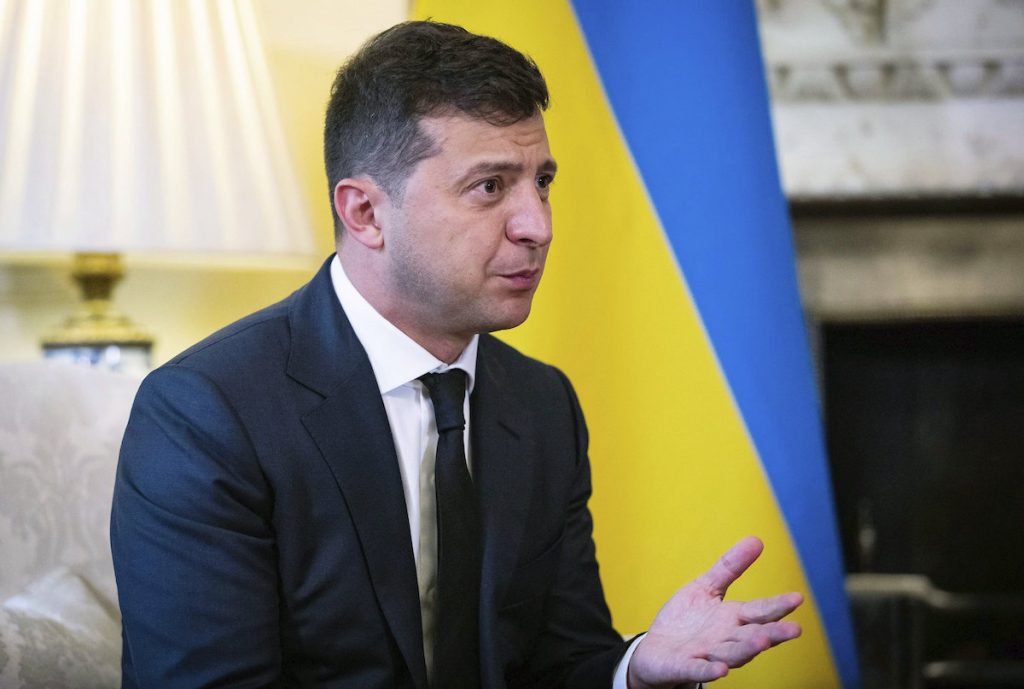
Volodymyr Zelensky, the former TV comedian turned Ukrainian president, has built solid relations with the West during his tenure. Zelensky campaigned to end oligarchy in Ukraine and to deepen Ukraine’s democratic institutions. After an assassination attempt on his top adviser, Serhiy Shefir, Zelensky alleged that groups of Ukrainians and Russians are planning a coup against him.
British intelligence confirmed that Russia intends to support former member of the Ukrainian Parliament Yevhen Murayev as the next presidential candidate in Ukraine.
Russian authorities and oligarchs loyal to Moscow have a proven track record of violence and psychological intimidation against political opponents. They are not beyond influencing elections or selecting candidates. American international relations expert Dov Levin shows that both the U.S. and the Soviet Union/Russia influenced one in every nine international elections between 1946 and 2000. Gier Karlsen of the Norwegian Defence University College argues that Russia “is the foreign state that tries to influence European politics.”
Weakening NATO or the European Union does not require tanks or missiles. Russian social media exploits divisive issues aimed at the public. Moscow then selects candidates and supports them through offshore capital. Ultimately, such influence requires the ability to move cash across borders quietly.
Offshore capital
That’s why the real front lines of conflict in Ukraine lie in bank accounts nestled in the foothills of the Swiss Alps or on the sandy shores of the British Virgin Islands. Many Ukrainian politicians are deeply connected to offshore capital, which leaves democracy vulnerable to Russian tactics. Former president Petro Poroshenko established an offshore shell company in the British Virgin Islands during the 2014 conflict in the Crimea.
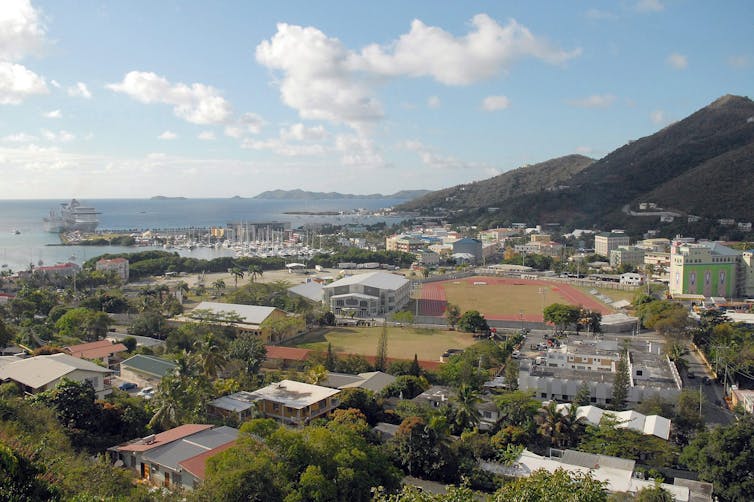
(AP Photo/Todd VanSickle)
Rinat Akhmetov, a popular billionaire in Ukraine and potential political rival to Zelensky, has several offshore accounts, including some in Switzerland. And even Zelensky himself was recently outed as owning shell companies in a complex offshore capital web.
Offshore capital is not always a gateway to belligerence. But previous research shows that it has regularly been used for illicit activities, including by countries like North Korea.
It relies on shadowy networks of assets management that go well beyond tax evasion. It’s estimated that Ukraine loses US$435 million each year to global tax abuse and a tracker that monitors illicit financial flows ranks Ukraine at 62 out of 100 in terms of being vulnerable to such illegal cash movements both in and out of the country.
The prominence of offshore capital within Ukraine politics leaves the country’s democracy vulnerable to corruption and influence. Top political figures all have connections to foreign assets. It begs the question: How much foreign financing is really shaping Ukraine democracy and security in Eastern Europe?
Sanctions in name only
Sanctions and weapons will not impact offshore capital. Previous research conducted on deceptive finance in North Korea has shown direct sanctions are often only symbolic. The true grit of financial measures comes by targeting the environment that perpetrators operate in. This would include focusing on the channels that Moscow relies upon to peddle influence within Ukraine.
If NATO is serious about deepening stability in Ukraine, it must pursue stronger commitments to supporting democracy. Gabrielle Bardall of Canada’s Parliamentary Centre calls democracy assistance “a low-cost, high-impact investment.”
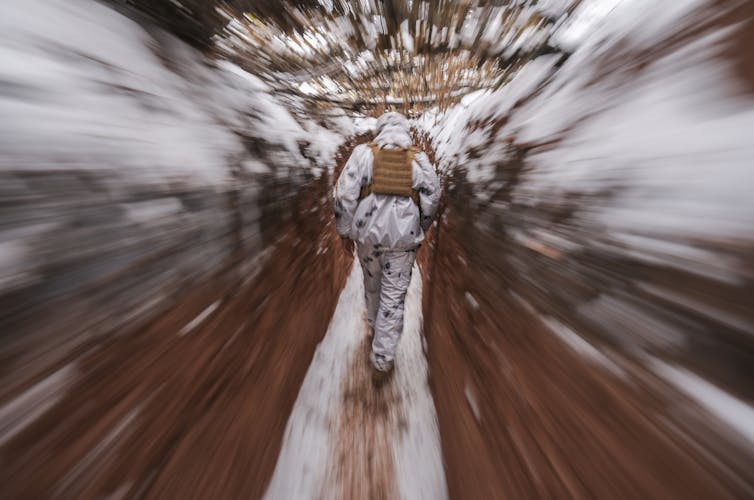
(AP Photo/Vadim Ghirda)
Bardall notes that inclusive democratic governance generates healthier societies, prosperous trading partners and a more secure world. NATO nations should therefore find ways to finance democratic structures within Ukraine that starve out any need or want of foreign influence.
The risk to Ukraine’s democracy currently lies with the politicians who have offshore assets that can be massaged and altered from Moscow or elsewhere. Preventing this is essential.
Putin has no desire for open conflict with NATO. But he has every desire to see democracies disrupted and corrupted. Taking the battle to the offshore banks is the first step of resistance. Securing better democratic structures that weed out offshore capital candidates is the next required step.
Robert Huish, Associate Professor in International Development Studies, Dalhousie University
This article is republished from The Conversation under a Creative Commons license. Read the original article.













